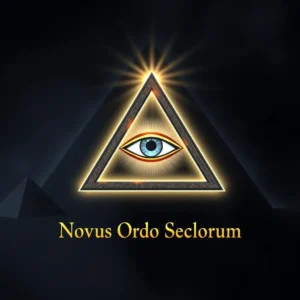A Comprehensive Overview of Prevalent Conspiracy Theories in Brazil
Brazil, like many countries, has its share of widely circulated conspiracy theories. These narratives often emerge from political, social, or cultural tensions and gain traction through media and word of mouth. Below, we explore some of the most persistent theories and their implications.
1. The Alleged CIA Involvement in Brazilian Politics
One of the most enduring conspiracy theories in Brazil suggests that the U.S. Central Intelligence Agency (CIA) has played a covert role in shaping the country’s political landscape. Proponents claim that the agency influenced events such as the impeachment of former President Dilma Rousseff and the imprisonment of Luiz Inácio Lula da Silva.
While there is no concrete evidence to support these claims, the theory persists due to historical U.S. interventions in Latin America. Critics argue that this narrative oversimplifies complex domestic issues and shifts blame away from local actors.
- Key Events Cited: 1964 Military Coup, Operation Car Wash
- Common Supporters: Left-wing groups, anti-imperialists
2. The Mysterious Death of President Juscelino Kubitschek
Former President Juscelino Kubitschek, who oversaw the construction of Brasília, died in a car crash in 1976. Many Brazilians believe his death was not an accident but an assassination orchestrated by political enemies or foreign powers.
Despite multiple investigations confirming the crash as accidental, speculation remains rampant. Some theories suggest military involvement, while others point to international actors opposed to his policies.
| Theory | Proposed Perpetrators |
|---|---|
| Military Dictatorship Involvement | Brazilian Armed Forces |
| Foreign Intervention | U.S. Government |
3. COVID-19 Vaccine Misinformation
During the COVID-19 pandemic, Brazil became a hotspot for vaccine-related conspiracy theories. Some claimed that vaccines contained microchips for surveillance, while others alleged they were part of a global depopulation scheme.
These theories were amplified by influential figures, including former President Jair Bolsonaro, who repeatedly cast doubt on vaccine efficacy. Public health officials struggled to combat misinformation, leading to vaccine hesitancy in some communities.
- Common Claims: Microchips in vaccines, altered DNA, hidden agendas
- Impact: Delayed vaccination campaigns, increased distrust in science
4. The “Republic of Curitiba” Conspiracy
This theory alleges that a secretive political and judicial faction based in Curitiba manipulated Brazilian law to target specific politicians, particularly during Operation Car Wash. Supporters claim that this group operated independently of democratic oversight.
While Operation Car Wash uncovered significant corruption, the idea of a shadow government in Curitiba lacks substantiation. Nonetheless, it remains popular among those who believe in systemic judicial bias.
FAQ Section
Are conspiracy theories unique to Brazil?
No, conspiracy theories exist worldwide, but their themes often reflect local historical and cultural contexts.
Why do conspiracy theories gain traction?
They often arise during times of uncertainty, offering simple explanations for complex events.
How can misinformation be countered?
Fact-checking, media literacy programs, and transparent communication from authorities can help reduce their spread.
Understanding these theories provides insight into Brazil’s societal anxieties and the challenges of combating misinformation in the digital age.
“`

